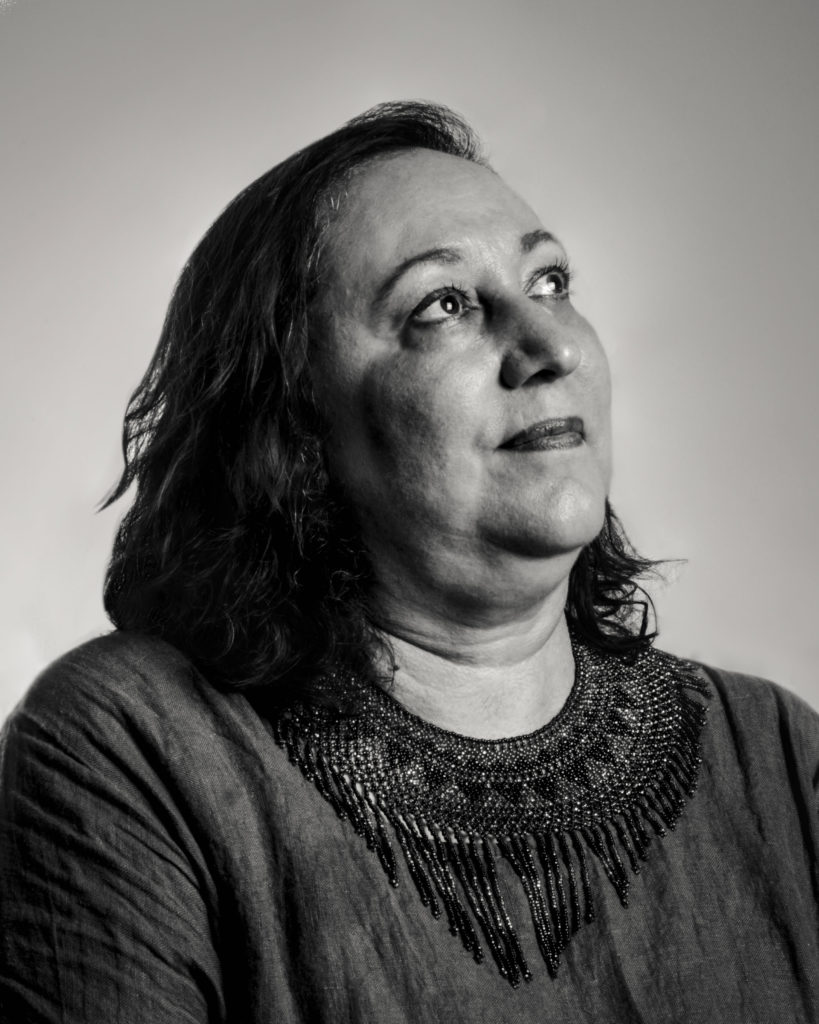
The Film Major at CHAVÓN Sits in the Front Row, with Our Coordinator, Tanya Valette, Holding the Clapper Board and Directing
Tanya Valette, a film and television producer, was the first woman to direct the International School of Film and Television (EICTV), founded in Cuba by the Colombian writer Gabriel García Márquez and recognized as one of the most prestigious film schools in the world.
Tanya, who also performs the roles of screenwriter, producer, and creator of documentaries, has worked in France, Spain, and Portugal in the world of documentary production and the development of author projects. She immediately returned to her native land and didn’t hesitate to put her vast experience as a manager of cultural matters at her country’s disposition.
In the audiovisual field, Tanya has served as an analyst and juror at several local and international festivals and has worked as a curator and coordinator of various meetings and workshops related to her specialty. She has also received many prizes, was part of the team that drew up the Dominican Republic’s Film Law, and later took charge of development strategies for the Dominican National Film Board.
In 2013 she was artistic director and head of programing of the International Film Festival of Murcia (IBAFF; Spain). She then served as head of production and direction of documentaries and experimental at Basanta Films (Dominican Republic), later holding the position of executive producer atLa Mala Res Films.
Since 2017 Tanya has coordinated the Film major at CHAVÓN, which has been recognized by Variety magazine as a stellar film school. So she knows well the school’s dynamics, and confronting this academic cycle, she is aware of the great challenge of transmitting through virtual teaching the passion of such a special field as film.
“Film is a collective undertaking and very hands on; what’s more, it even calls for a degree of craftsmanship,” affirms this expert on the subject, who asserts that she is prepared—together with the teachers working with her in the major—to guarantee that in this sui generissemester, theory and practice will come together, and that powerful audiovisual pieces can be produced.
Among the tools that Tanya offers our students, so that they may achieve distinction in the world of film, are “the construction of an individual viewpoint, through a route that brings them to a clear vision of film, society, the world…. Finding their identity at the same time as they’re answering such questions as Who am I? Where do I come from? From what vantage point do I look at the other? And the most important conversational and narrative devices, because I consider these areas to be a weak point in our filmmaking.”
She cites several reasons to study Film at our school, but she ranks the following first: “At CHAVÓN the major has a multidisciplinary design, which enables those who complete the two-year program to go out into the marketplace with comprehensive training that covers the principal areas ofthe work of filmmaking.”
The experience is not improvised, and this creative woman wagers that classes are 100% theoretical–practical and that students will create a series of individual and group pieces during the course of each module. Tanya is confident in the professionally active faculty that back her up: of diverse nationalities, they bring a diversity of approaches. Further, she deals with film in all its forms and formats and, above all, dreams that “students will be able to tell stories from the place where their stories demandto be told.” And Tanya’s dreams usually come true.
Nelson Carlo De Los Santos, maestro de CHAVÓN CINE, gana el Oso de Plata a Mejor Director en la Berlinale.
+ Read more
Egresados de CHAVÓN Cine resultan ganadores en FONPROCINE 2023
+ Read more
La Oportunidad de Regalar Conocimiento y Crecimiento: Certificados de Regalo
+ Read more
El 2024 se aproxima, y con ello, la oportunidad de fortalecer tu creatividad.
+ Read more
CHAVÓN recibe a la empresaria y filántropa venezolana Carmen Busquets.
+ Read more
Xavier Roselló asume el cargo de Coordinador de la Carrera de Diseño de Interiores y Productos en CHAVÓN
+ Read more
CHAVÓN ofrecerá nuevamente el Programa de Estudios Avanzados de Cine: “El Guionista Como Autor”
+ Read more
Conoce el enfoque sostenible y humano del Diseño de Productos por Omar Guerra, Diseñador Industrial.
+ Read more
